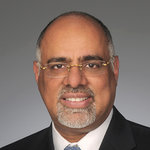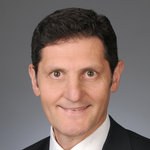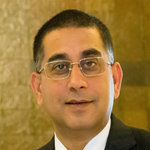
Mastercard Inc
NYSE:MA

Mastercard Inc





Mastercard Inc., a titan in the global payments industry, operates at the heart of the digital economy's relentless march forward. Established in the 1960s, the company initially started as a consortium of large banks seeking to offer a new kind of financial service—a plastic card that could be used universally and significantly ease the burden of carrying cash. Fast forward to the present, Mastercard has transformed into a technology company in the global payments space, facilitating transactions across a vast network that spans over 210 countries and territories. The company connects consumers, financial institutions, merchants, governments, and businesses worldwide, offering not merely a payment card but an intricate web of products and services that aim to make transactions faster, easier, and more secure.
The genius of Mastercard’s business model lies in its "four-party" system: it connects the cardholder, merchant, issuing bank, and acquiring bank with precision and efficiency. Mastercard does not issue cards itself; instead, it licenses its brand and technology to banks and financial institutions, which in turn issue the cards to consumers. The company earns revenue primarily from transaction processing fees whenever a Mastercard is used, as well as additional fees for services related to fraud prevention, data analysis, and consulting. This model allows Mastercard to capture value by facilitating and securing transactions, taking advantage of the network effect where more cardholders and merchants fuel usage, thereby increasing volume and boosting revenues. As the world increasingly shifts to cashless transactions, Mastercard finds itself in a favorable position, acting as a key player and enabler in this global transformation.
Earnings Calls
In the first quarter, the company reported net trading revenue of GBP 209 million, an impressive 62% increase year-over-year. This growth was fueled by heightened trading activity and a 50% rise in active clients, totaling over 200,000. The core markets division performed well with revenues up 56% at GBP 170.8 million. Additionally, strategic pricing changes attracted 34,600 new clients, marking a 129% year-on-year increase. While the company anticipates revenue normalization this financial year, it aims for GBP 100 million in incremental revenue by FY '22. No major regulatory developments were noted, and existing guidance on costs remains consistent with revenues.
Management

Edward Grunde McLaughlin is an executive known for his significant contributions to Mastercard Incorporated. He has served as the President of Operations and Technology at Mastercard, a role in which he has been responsible for overseeing the company's technology operations globally. His leadership has helped drive innovation and efficiency within the organization's technological infrastructure, ensuring that Mastercard remains at the forefront of the payment industry. Before ascending to this prominent role, McLaughlin was the Chief Information Officer (CIO) at Mastercard. As CIO, he led the company's technology strategy and was pivotal in advancing Mastercard's digital transformation efforts. His work focused on enhancing cybersecurity measures, improving data analytics capabilities, and fostering a culture of technological innovation to meet the demands of a rapidly evolving financial landscape. McLaughlin joined Mastercard in 2005, bringing with him valuable experience from his previous roles in the financial services and technology sectors. His industry expertise and forward-thinking approach have played a crucial role in Mastercard's efforts to develop and implement cutting-edge payment solutions for businesses and consumers worldwide. Throughout his tenure at Mastercard, Edward McLaughlin has been recognized as a key figure in steering the company through various technological challenges while positioning it as a leader in the global payments ecosystem. His commitment to leveraging technology to enhance customer experiences and drive business growth continues to make a significant impact on the company and the industry as a whole.

Timothy Henry Murphy is a prominent executive who has been associated with Mastercard Inc. in various leadership roles. He has played a critical role within the organization, contributing significantly to its growth and strategic direction. Tim Murphy has served as the General Counsel for Mastercard, where he was responsible for overseeing the legal affairs of the company globally. In this capacity, he worked on ensuring that Mastercard's operations complied with various legal and regulatory requirements, an essential function for maintaining the company's reputation and operational integrity. Beyond his role as General Counsel, Murphy has taken on other strategic responsibilities within Mastercard. His leadership skills and legal expertise have been crucial in steering complex transactions, managing global regulatory challenges, and driving strategic initiatives that align with Mastercard's business goals. Murphy holds a Juris Doctor (J.D.) degree, which underpins his extensive legal acumen and has been fundamental in his professional journey within Mastercard and beyond. Throughout his tenure, Timothy Henry Murphy has been recognized for his ability to blend legal insights with business strategy, making him a valued member of Mastercard's executive team. His contributions have helped bolster Mastercard's position as a leader in the global payments industry.

Devin Corr serves as an executive officer at Mastercard Inc., holding the position of Treasurer. In this role, he is responsible for managing the company's global treasury operations. His duties encompass overseeing corporate finance, capital markets, global banking, and risk management activities. Corr plays a pivotal role in ensuring optimal liquidity management and strategic financial planning, contributing to Mastercard's overall financial health and operational success. He brings extensive experience to this position, having built a career specializing in corporate treasury and financial risk management. His leadership helps drive Mastercard’s financial strategies and supports its mission to build a more connected and inclusive economy.

Tiffany M. Hall is an executive at Mastercard Inc., recognized for her extensive experience in technology and operations management. She serves as the Executive Vice President of Global Consumer Products and Processing. In this role, she focuses on enhancing Mastercard's offerings in the digital and consumer products space and plays a crucial role in driving innovation to meet evolving consumer needs. Hall is celebrated for her strategic vision in technology and her ability to lead cross-functional teams to deliver impactful business results. Prior to joining Mastercard, she held various leadership positions in other tech-driven companies, where she honed her expertise in product development and digital transformation. Her leadership at Mastercard is instrumental in ensuring the company stays at the forefront of payment solutions globally.

Raja Rajamannar is a notable figure in the business world, particularly known for his role as the Chief Marketing and Communications Officer at Mastercard Inc. He is recognized for his innovative approach to marketing and for driving the company's transformation in an increasingly digital landscape. Rajamannar joined Mastercard in 2013 and has been instrumental in evolving the company’s brand strategy, digital marketing, innovations, sponsorship activities, and driving business-building initiatives globally. His work focuses on modernizing the Mastercard brand and enhancing consumer engagement through cutting-edge marketing technologies. Before joining Mastercard, he had an extensive career in financial services, healthcare, and consumer goods. He has served in senior marketing and business roles at companies such as Anthem, Inc., Humana, and Citigroup. In addition to his marketing expertise, Rajamannar is known for his visionary thinking and leadership in advocating for the fusion of marketing with technology to create a more impactful consumer experience. Raja Rajamannar is also an author, having penned "Quantum Marketing" — a book that outlines a radically new approach to marketing based on his extensive experience and insights. His thought leadership and contributions to marketing have earned him numerous accolades and recognition within the industry.
Ruosi Wan serves as the Executive Vice President, Services and Data, Asia Pacific at Mastercard. Her role involves driving the strategic growth and development of Mastercard's services and data business, focusing on areas such as cybersecurity, artificial intelligence, and data analytics to support the company’s growth and innovation in the Asia Pacific region. Prior to her current position, Wan held various leadership roles within Mastercard, demonstrating a strong track record in business development and strategic planning. Her expertise in leveraging data and technology to enhance payment solutions has been instrumental in advancing Mastercard’s objectives in the region. Wan’s leadership is characterized by her focus on fostering innovation and building strong partnerships across different markets.

Michael Fraccaro is a prominent business executive known for his role at Mastercard Inc. He served as the Chief People Officer at Mastercard, where he was pivotal in leading the company’s human resources strategy. Fraccaro joined Mastercard in 2012 and held various roles before becoming the Chief People Officer in 2016. In his role, Michael Fraccaro has been responsible for talent management, learning and development, organizational development, and fostering a strong culture within Mastercard. He focused on helping the company adapt to a rapidly changing work environment, emphasizing diversity, equity, and inclusion as well as creating a collaborative and engaging workplace for employees. Before joining Mastercard, Fraccaro had a significant career in banking and financial services, including leadership positions in human resources at HSBC. His deep expertise in human resource management and talent development has been instrumental in driving Mastercard’s people strategy globally. Michael Fraccaro holds a Bachelor of Education degree and a Master of Applied Science from the University of Wollongong in Australia.

Safdar Khan is an executive at Mastercard Inc., where he has held several key leadership roles. He currently serves as the Division President for Southeast Asia, a position in which he is responsible for overseeing operations and strategy across the region. With a focus on driving digital transformation and financial inclusion, Khan has played a significant role in expanding Mastercard’s presence and influence in Southeast Asia. Previously, he has led Mastercard’s businesses in various regions, including the Middle East and Africa. Khan's expertise in financial services and his strategic vision have contributed to Mastercard's growth in emerging markets. He is known for fostering innovation and partnerships that advance the company’s digital solutions. Under his leadership, Mastercard has introduced various initiatives aimed at empowering consumers, businesses, and governments through advanced payment technologies. Throughout his career, Khan has been recognized for his ability to navigate complex markets and for his commitment to promoting a cashless society. His work aligns with Mastercard’s broader goals of creating a more connected and inclusive global economy.

Eva Chen is not a well-known executive officer at Mastercard Inc. Therefore, it is likely that there is no public biography or detailed information available about her in the context of Mastercard. If you meant someone else or have any other queries, please let me know.

Ling Hai is a prominent executive associated with Mastercard, recognized for his leadership roles within the company. He has served in various capacities, contributing significantly to Mastercard's strategic expansion, particularly in the Asia-Pacific region and other emerging markets. Ling Hai co-presided over Mastercard's business in Asia-Pacific and was responsible for overseeing operations, business development, and driving strategic partnerships across the region. His deep expertise in financial services and his ability to navigate complex international markets have been instrumental in Mastercard's growth and innovation strategies. Before joining Mastercard, he held several key positions in global financial institutions, which equipped him with a robust understanding of the financial ecosystem and consumer behavior in diverse markets. Ling Hai is known for his forward-thinking approach and commitment to leveraging technology to enhance financial inclusion and improve customer experience. Throughout his career, Ling Hai has built a reputation for fostering collaborative environments and advocating for diversity and inclusion within the workplace. His leadership style is characterized by strategic vision and an emphasis on developing sustainable business practices.


















































 You don't have any saved screeners yet
You don't have any saved screeners yet

Ladies and gentlemen, welcome to the Q1 full year 2021 revenue update call. My name is Stuart, and I'll be the operator for your call this morning. [Operator Instructions]I will now hand you over to Charlie Rozes, Chief Financial Officer. Please go ahead.
Thank you. Good morning, everyone. I'm Charlie Rozes, the IG Group's CFO, and I'm actually speaking to you from our London office this morning, which we reopened at the start of September. I'm also joined by Karen Toh, our Director of Group Finance; and Liz Scorer, our Head of Investor Relations.I'm sure you've already seen our very positive announcement this morning on our first quarter group revenue performance. Before opening the lines to questions, I'd like to just take a couple of minutes and take you through a few key highlights.Net trading revenue was clearly very strong at GBP 209 million, up 62% on the prior year. This performance was driven by continued high levels of trading activity by existing clients and also growth in the active client base, with over 200,000 active clients in the quarter, representing a 50% increase on the prior year and also up 1% on our record Q4.Throughout the first quarter, we continued to see elevated levels of market volatility, in which our clients saw opportunities to trade across all asset classes. Our core markets businesses continued to perform very well, with revenue up 56% on the prior year at GBP 170.8 million. Strong growth in the retail client base within the U.K. and Europe was a standout from these businesses.Performance across the group's significant opportunities portfolio remained on track to deliver the planned GBP 100 million in incremental revenue by the end of FY '22, with revenue up 94% on the prior year, at GBP 38.2 million.I know that significant opportunities are a key area of interest for you all, so before you ask, we are planning to provide more color on the performance of each of the opportunities as part of our interim results in January.Let me move on briefly to client acquisition. We continue to see strong demand for our products throughout the quarter. And when combined with improvements in marketing effectiveness, we onboarded over 34,600 new clients to the group, up 129% year-on-year, with about 2/3 of these clients trading our OTC leveraged products.We also saw good retention rates in the period, with rates following similar trajectories to historical averages across all of the client cohorts that we track and manage, including the Q4 client cohort, which is encouraging to see. We continue to closely monitor the behavior of all of these cohorts in the context of the exceptional trading condition that we continue to experience.I don't have any updates to our earlier full year cost guidance other than to remind you that some of our cost lines are correlated to revenue, such as card charges, some types of marketing expense and variable remuneration. So these, of course, will depend on the revenue outturn for the full year.Lastly, from a regulatory perspective, there haven't been any material developments in the quarter, which means, as we said at the time of our prelims, we're still awaiting a decision from the Australian regulator on the outcome of their consultation into the offering of CFDs to retail clients. We do, however, still expect an announcement from them within this financial year.So to wrap up, we're really encouraged by the start to the financial year, with this quarter being particularly strong in terms of revenue. Consistent with our previous guidance, there's been some moderation from the revenue levels achieved in Q4, and we continue to anticipate that normalization will occur in the course of this year. Elevated levels of market uncertainty and volatility, nonetheless, create a lot of opportunities for our clients to trade, and the high number of active clients in the quarter clearly reflected this.That's all I've got for now. So thank you, and I'll now open the line for questions.
[Operator Instructions] Your first telephone question today is from the line of Ian White from Autonomous Research.
Can I just ask a couple on Spectrum, please? Just -- I think in the full year presentation, on the results, you mentioned you were in discussion with one broker, I think, regarding connections to Spectrum. So could you just provide us an update on where discussions are in terms of connecting brokers and market makers at Spectrum, please? That's the first question.And just secondly, can you help me understand how would broker connections impact the economics of that business? So if trading volume were to double, for example, but all of the incremental volume came through brokers that have been connected to the platform, what would happen to revenue under those circumstances, please?
Yes. So let me just give you a couple of things on it. As I said, I mean, we'll talk in more detail about where we are with the exchanges at the half year. I mean we do have discussions that are underway, and we actually have some testing underway to connect some new brokers onto the platform. So those are underway right now, and I would just say watch this space. I think we're pleased with the progress that we're making on it. We spend a lot of time getting to the point that we're at right now in development. And again, I think we're still encouraged by what we see in that space.In terms of the economics, I mean, as the exchange grows and there are more brokers, there are more market makers, et cetera, I mean, I wouldn't give any specific guidance on how I think those economics might work. I think it's obviously a competitive space, and we need to be competitive in that market. But I would just say that the more activity we can get running through the exchange, I think the more visibility we can get to it, I just think that rising tide will lift all the boats around it. So...
[Operator Instructions] Next question comes from the line of Rahim Karim from Liberum.
Just kind of a quick question on the stock trading investment performance, very strong. If you're able to give any color on what's driven that during the period. And then just on your comments regarding the trajectories of kind of retention rates for the kind of fourth quarter cohort, if you're able to provide any color on that.And then kind of finally, just on the locations of the new clients onboarded during the period, if there's any color you can give on that, that would be greatly appreciated.
Yes. I think I'll try to take them in a reverse order. In terms of the mix and where they're from, that's followed similar patterns to what we've seen previously. So there haven't been any, I would say, really discernible shifts or changes in either the markets or the parts of the world where new clients are coming in.I mean some of the rates of growth are a bit quicker, say, like in the U.S. coming off smaller bases, slightly younger demographic there, just for example. So there are some small changes, but there aren't any pronounced shifts from what we've been seeing more recently.I think your second question was on...
Just the fourth quarter cohort. You talked about retention. I was just wondering if there's any color.
So those -- again, those have continued. So I would just take you back to what we said at the full year at the end of July. The attrition rate at the time was slightly higher than what we've seen with other cohorts. That rate has now continued, but it isn't something that I would flag. I think from our view, that isn't unusual, I think, given the circumstances in the fourth quarter.We have seen some attrition of what we think are maybe more lower-value clients, ones who came in and have come off the platform. I think the higher value ones that we tend to focus on, those are still there and those are still trading. So we feel good about that.And then as far as the stock trading business, we did make some changes to pricing around the product set that we think have paid off quite well for us. We're focused on trying to attract active traders onto the platform. And so, for example, U.S. stocks for active traders, we went commission-free on those. But for those less active traders that tend to buy and hold, we still kept the commission schedule on those.So -- and some of the pricing does vary, whether it's U.K., Australia, et cetera. But we did make some pricing changes that we think paid off. We think it was quite attractive to people, pull them into the business. And again, I'd probably point to that as being the one thing that we did that pulled people into stock trading with us.
[Operator Instructions] This concludes our question-and-answer session. I would like to turn the conference back over to Charlie Rozes for any closing remarks. Please go ahead.
Great, thanks. Everyone, thanks for joining the call today. We appreciate your continued engagement. We've had a good start to the year. We look forward to seeing you all at some point in the future when circumstances allow. So if you have any further questions, please feel free to reach out to Liz and the team. Thanks again.
Ladies and gentlemen, this concludes today's conference. Thank you for joining. You may now disconnect. Goodbye.